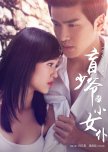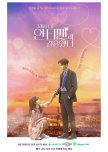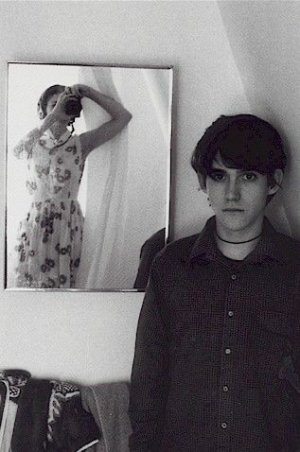
Put this on your Hate Watch list RIGHT NOW
Why I give this a full 10 on the rewatch value you ask? this shit was fucking hilarious. So much so I had to spend my time writing this review to convince you to get your friends to hate watch it with you on a sleepover. I was fucking crying mess at some scenes. Now objectively of course it's beyond terrible but take it as a comedy, you'll have the greatest time ever.This movie steadily grows more outrageous in its awfulness, generating countless laugh-out-loud moments. It is filled with hilariously bad acting and incredibly crappy dialogue. In fact from the very first scene in this movie, you quickly get the feeling that something is horribly wrong.
It's not as ridiculous as Tommy Wiseau's The Room but it's definitely up there and that's saying something.
But be honest you already predicted this kind of reception, didn't you? if you read the premise you'd know this movie is no good. You want to watch it out of morbid curiosity and that's fine, I did too and had a gala time.
Was this review helpful to you?

This review may contain spoilers
Boring Clusterfuck of Cliches (mild spoilers)
idk why this has 8.0 rating, there are so many dramas that do enemies-to-lovers better than whatever this was.As much as I love Tae Joon and Soo Young this was a just badly written, it makes sense that this was made sometime during 2018 because I can't see these two actors picking up a script like this rn.
This didn't even make it to my guilty pleasure list, I completed this just out of spite.
None of the characters were likeable, which is alright with me in general, I don't watch dramas expecting to find perfect people. But when I say unlikable I mean they are written poorly.
What irks me is when dramas try to sell us unlikable people as someone we should sympathise with because they had a badly written traumatic past or when they try to make the audience believe that a female character is strong initially then completely throw that trait off by making her do stupid or downright embarrassing things which add absolutely nothing to the plot.
None of the characters had any traits that would make me root for them, literally none! I'd come to like a character and then two-three scenes later they'd end up doing something completely contradictory in the name of unnecessary angst. If this was a crime-thriller genre then this outcome would make sense but in a rom-com you'd expect to find the main characters likeable at least. Sad!
I won't talk about SML and SFL because holy shit I haven't hated fictional characters so much in a very long time, which was fine with me, it meant that they were doing their job well...that was until the writers practically forced us to feel bad for them by spoon feeding us 'justifiable' reasons for their actions. Hate it when writers think of audiences as empathetic fools.
Character development should happen naturally, you can't make us hate a character right until the 14th ep and then just aimlessly throw some sympathetic flashback scenes towards the end to make us feel something for them.
The only redeeming quality of this show was Soo Young despite me finding her character unlikable. I've seen Tae Joon's other works and he acts well but his acting seemed lax in this one, idk if its because his character was written haphazardly with a backstory that i simply didn't care about, whatever the reason might be for his lacklustre performance his character just didn't seem to have a presence of an idol who is supposedly loved by millions of people.
One thing I did genuinely enjoy was the lack of a crazy love triangle, it did have love triangle initially but it was resolved cleanly. Also the romantic scenes between the ML and FL were cute as hell, their intimacy was natural and the bickering didn't just suddenly stop after they got together it was fun to watch them together.
PS. The OST sucked BIG TIME though lol. (music is subjective though so take this with a grain of salt)
Was this review helpful to you?

This review may contain spoilers
The Weight of Seasons
I delayed watching 'Our Beloved Summer' for nearly two years, initially dismissing it based on its trailer. At the time, I wasn't in the mood for a story about seemingly immature high schoolers entangled in trivial romances and breakups. However, watching it now, two years after its release, I realise that my earlier mindset might have prevented me from appreciating the drama’s true essence. Recently, I decided to give the trailer another look before diving into the series, and a particular detail caught my attention. Choi Ung, portrayed by Choi Woo Shik, was holding a copy of my favourite book, 'The Unbearable Lightness of Being.' This unusual choice for a romcom immediately signalled that 'Our Beloved Summer' was not your typical K-drama filled with clichéd conflicts between the main characters. The screenplay ingeniously incorporates the theme of eternal return, a pivotal concept in both the book and the drama. This philosophical thread, reminiscent of themes explored in 'Past Lives'—another stellar example of Korean storytelling—suggestively weaves together notions of destiny and interconnected fates, or what some might refer to as 'yoon-myeong' or the 'red string of fate.' This creative narrative choice not only sets the drama apart but also enriches its depth, making it a profoundly unique viewing experience.
Choi Woo Shik's portrayal of Choi Ung in 'Our Beloved Summer' masterfully subverts the conventional 'low-achiever' archetype often seen in dramas. Contrary to expectations, his character isn't compensated for academic shortcomings with a boisterous or charismatic persona—attributes typically assigned to such roles to bolster their likeability. Instead, Choi Ung is depicted as quiet, pensive, and introspective. Despite his youthful immaturity, there’s a depth to his demeanour that defies the usual clichés. Although deeply loved by his adoptive parents, Ung carries the weight of knowing he was adopted after the tragic loss of his parents' biological child. This knowledge, discovered early in his childhood without his parents' awareness, instills in him a profound sense of living a 'borrowed life.' This internal conflict is eloquently captured in his reflection: 'At times, nothing is the best you can do when you’re living a borrowed life.'
This sense of indebtedness and the fear of being inherently 'worthless' manifest in his aimlessness and aloof demeanour, despite the introspective qualities suggested by his eclectic book choices. Ung admits, 'Deep down, I was afraid that I might be a worthless person. That’s why I pretended not to know anything and that I wasn’t interested at all.' This confession reveals the layers of his internal struggle—how his academic disengagement and reserved nature are not merely personality traits but a protective facade against deeper fears of inadequacy.This thoughtful characterization not only challenges stereotypes but also adds a layer of authenticity to the narrative, making Choi Ung a relatable and compelling figure. His unique traits enrich the story, offering viewers a fresh perspective on what it means to be a protagonist in a youth-driven narrative.
One of the most poignant aspects of 'Our Beloved Summer' is its unflinching portrayal of poverty and its impact on personal relationships. A line from Kook Yeon Soo (Kim Da Mi) particularly resonates: 'I wish I was only poor to the point I could bear it. Please just for once.' This statement not only underscores the crushing weight of her financial struggles but also profoundly illustrates the emotional and psychological toll it takes on her. It’s a pivotal moment that clearly delineates the heartbreak and realism of her character’s journey, providing insight into the reasons behind her eventual breakup with Choi Ung. While Choi Ung is not exceptionally wealthy during college, his relative financial stability allows him the luxury of dreaming—a luxury Yeon Soo cannot afford as she is compelled to enter the workforce immediately after college, foregoing further education. This stark contrast in their circumstances breeds an inferiority complex in Yeon Soo, and understandably so. Her decision to end their relationship, driven by a fear of eventual resentment despite her love for Ung, is portrayed not as a failure on her part but as a painful act of self-preservation and practicality. Reflecting on their breakup years later, Yeon Soo labels her younger self as immature. However, from the perspective of her dire financial pressures, her choices appear both rational and sadly necessary.
The dynamic between Choi Ung and Kook Yeon Soo exemplifies a more nuanced approach to the 'enemies-to-lovers' trope. Unlike typical portrayals where stark opposites attract, their relationship is grounded in subtle yet profound similarities that make their bond both realistic and enduring. Both characters navigate their own forms of loneliness, insecurity, and a sort of premature maturity forced upon them by challenging childhoods. These shared experiences and traits—thoughtfulness, introversion, and a blend of immaturity coupled with wisdom beyond their years—forge a deep mutual understanding. This foundational connection is what makes their reunion, five years post-breakup, feel so natural and inevitable rather than forced. The concept of 'eternal return' woven throughout the drama doesn’t just recur in their fate but resonates deeply in their aligned personalities and past experiences. This thematic and emotional congruence ensures that their relationship stands the test of time, making their narrative not only compelling but also heartwarmingly authentic.
Additionally, the series delves into Kim Ji Ung's (Kim Sung Cheol's) poignant struggle with loneliness, accentuated by his unrequited love for both Yeon Soo and his emotionally distant mother. His role as a documentary producer, which compels him to observe life from behind his camera, initially appears as a safe detachment but increasingly becomes a suffocating cage. This metaphor of entrapment is profoundly illustrated when he chooses to film his dying mother—a decision intended to pave a path to reconciliation. However, this resolution doesn't evoke the sense of closure one might expect; instead, it leaves a lingering sense of sadness, as if the reconciliation is just another scene in his array of observed lives rather than a heartfelt connection. The character NJ (Roh Jeong Eui) also presents a compelling narrative, grappling with the dissonance between her public idol persona and her private identity. She finds an unexpected refuge in Choi Ung's art, which helps bridge her internal divides. Meanwhile, Yeon Soo’s evolution is equally significant. Her realisation towards the series' end, 'the only person who made my life seem pathetic was me,' marks a pivotal moment of self-acceptance. While her struggles with poverty initially isolated her, she eventually recognised the support system she always had in her friends and in Ung. This newfound acceptance and confidence enrich her character's journey, illustrating the transformative power of self-awareness and support.
'The documentary metaphor' that the series employs is especially striking, suggesting that it's the ordinary moments of our lives that compile our unique stories. This notion is beautifully encapsulated in the exchange, 'How pitiful,' 'Who?' 'Just us...us...and everyone...' It reminds us that while we may often feel trapped in the minutiae, it is these very moments that define and distinguish our lives. 'Our Beloved Summer' excels in portraying these subtle yet significant life experiences, making it a memorable and reflective drama.
Was this review helpful to you?






